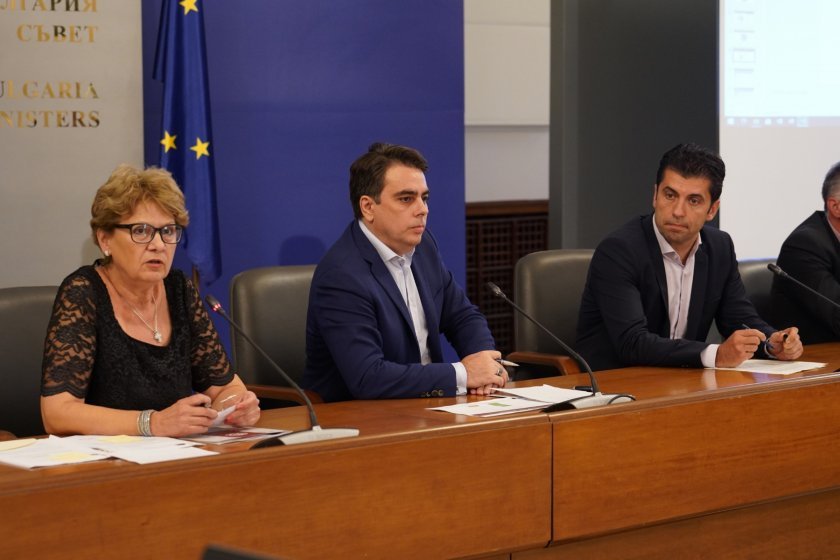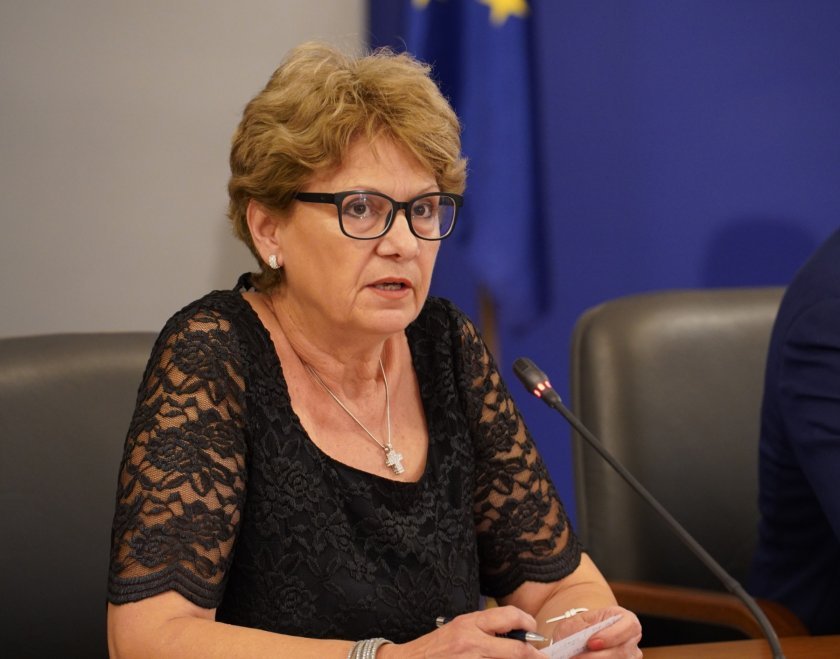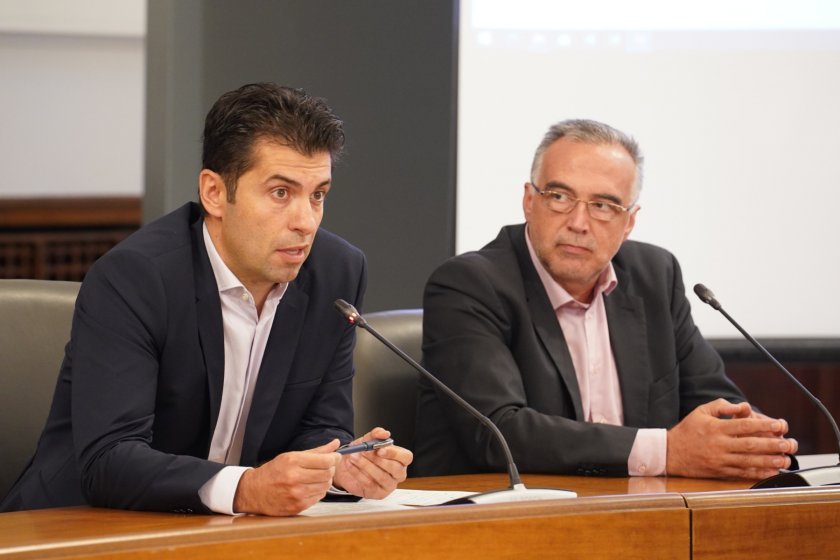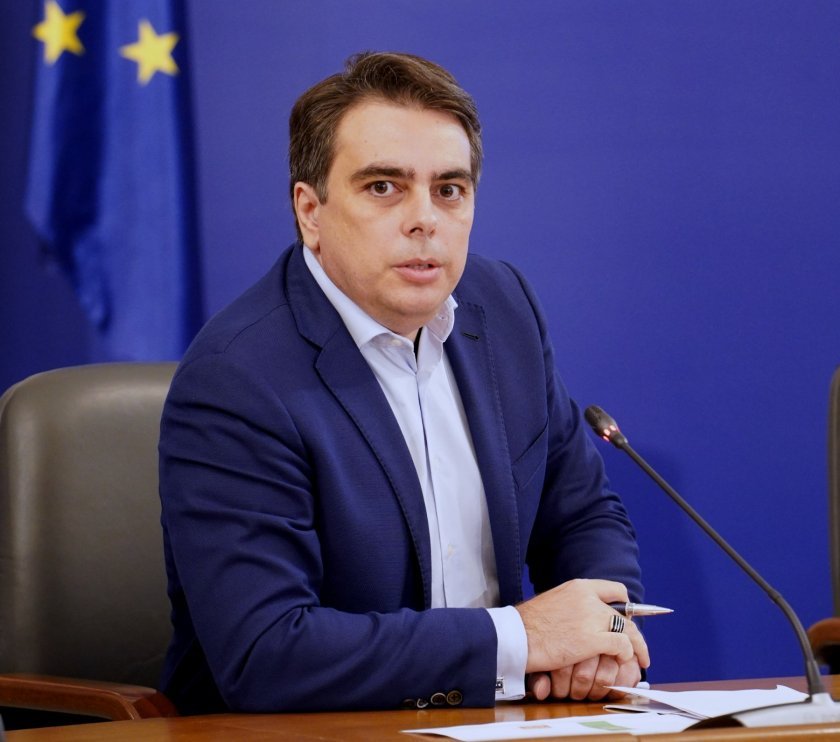
BGN 8.5 billion have been spent on contracts in one year without public procurement. This became clear at a joint briefing of the caretaker Minister of Regional Development, Violeta Komitova, caretaker Minister of Finance, Assen Vassilev and caretaker minister of the Economy, Kiril Petkov, after the meeting of the Council of Ministers on June 30. The ministers gave explanations on the topic of the so-called "in house" orders.
Cabinet spokesman, Anton Kutev, described "in-house" procedures as "loopholes in the law that allow hugely funded contracts to be awarded without public procurement and without specific procedures". Kutev said it is in all European legislation, but only in limited cases when it comes to urgency. This is also the case in the Bulgarian legislation. "But, as you will see, this is not quite the case in the recent years in Bulgaria," Kutev said.
In the Ministry of Regional Development and Public Works, these procedures are divided into two major topics - landslides and the Hemus motorway, explained the Minister of Regional Development and Public Works Violeta Komitova.
She presented data that for 2019 with a ministerial decree there was a great urgency to strengthen 84 landslides, for which BGN 580 million have been allocated from the budget. 201 million went to Avtomagistrali EAD, which negotiated with 30 companies and transferred 188 million advance payments to them without public procurement. For each company, the amount to be transferred was determined by an offer given by the company. Company X, for example, has received a contract for 16m, Komitova said.
"Advance payments were distributed for all 84 landslides in December 2019. Only one landslide is being worked on - this is at the Rila Monastery. The contracts expire in December this year. It is difficult for me to imagine how we will implement them," the minister said.

The “in-house” procedures for Hemus Motorway started in 2018 with one ministerial decree and in 2019 with another ministerial decree. The state provided BGN 3.71 billion from the national budget for the motorway. The Regional Development Ministry, Road Infrastructure Agency, “Avtomagistrali” (Motorways) EAD received BGN 1 billion and 140 million each for the construction of the motorway This happened around the end of 2020. The company distributed 976 million to 45-50 companies in advance for the future construction of Hemus Motorway. It was divided into 9 sections and did not cover the entire road from Yablanitsa to Varna, but ends at 220 km from Yablanitsa. After section 9, the Hemus motorway was being operated by another company. In this case, the money was also transferred by the Ministry of Regional Development and Public Works to RIA, “Avtomagistrali” (Motorways) company and other companies without public procurement under the guise of the so-called “in-house” procedure, Komitova added.
She said that all "in-house" orders take place in some kind of construction, landslides, dams, etc activities. These are orders with "engineering" - a procedure in which the construction bill can be made bigger, she said and explained:
"What does this mean? For example, a construction requires 100 cubic metres of concrete, but in engineering we can write 500 cubic metres of concrete.
The engineering is assigned to the same company to make a project on paper, and to the same company to carry it out and to hire a supervisory company to monitor the quality during the construction. The construction company dominates and it can dictate to both the designer and the supervisor. Engineering is not prohibited, but is only available for unique projects. Imagine a path in the field - what sort of unique technology is this? "
According to her, there is a phenomenon called “corporate slavery” - a company gets a contract for many millions, but it does not have the capacity to perform the construction and does not have the right to subcontract, then it hires "slaves" and they work without contracts.
The same structure is observed in both the Ministry of Regional Development and the Ministry of the Economy. In the Ministry of Regional Development and Public Works it is called “Avtomagistrali” (Motorways), in the Ministry of Economy it is called the State Consolidation Company, the Minister of Economy, Kiril Petkov, said.
“Today I want to pay attention to the construction of the government complex. Imagine a 90,000 square metre office building in Sofia Tech Park, given a signed contract without a public procurement for the price of 182,202,000. 182 million were given without a public procurement to a company for full engineering - design, construction and supervision," said the Minister.
He asked why a 90,000 square metre administrative building is needed, why such a building should be placed exactly in Sofia Tech Park and why the money is given to engineering without a public procurement.
For the dams, 630 million have been given to the State Consolidation Company.

"It has paid in advance 100% to the state-owned company, which is owned by it. Of that 630 million, so far we have only ten completed repairs. For those repairs, in which I personally went into detail to see what happened, the figures, which I saw, were twice the price of concrete compared to the market price and five times the price of transport," Petkov explained.
Minister Petkov added that it was striking for him that out of the ten completed dams, all ten were at very similar prices.
Over 80% of the companies that have fulfilled these contracts are only 7 or 8 in number. Large concentration of companies, all with very similar values at unit prices, regardless of where they are in Bulgaria. Of the three dams I personally checked, "Pazar Dere" and "Zlati Voyvoda" have been made by the same company, is it the most competitive everywhere in Bulgaria? "Petkov asked.
Caretaker Minister of Finance, Assen Vassilev, clarified that the information they present was very difficult to collect, as the state-owned enterprises and the "in house" procurement orders are not summarized in the register and these contracts are not public.

"From January 1, 2015 to April 30, 2021, public enterprises have concluded contracts with a total value of just over BGN 20 billion. Of these contracts, BGN 11,700,000 were with procurement orders, and BGN 8,600,000 were without orders, i.e. about 40-42% of the money that state-owned enterprises spend is without public procurement," Vassilev said.
The finance minister clarified that "in-house" orders are provided if there is "a public, municipal, state-owned enterprise that can do the job."
According to him, in the way “in-house” contracts are designed, such an enterprise should not be able to use subcontractor
"This is a way to avoid public procurement and to give money to subcontractors without a tender and without a competition, and here we are not talking about a little amount of money. BGN 8,696,000 have been distributed without a competition, he said.
Vassilev said that this amount is equal to the money for pensions for 9 months and was distributed to companies without public procurement.
"There was no money from 2008 to update pensions, but they had 8 billion for companies without procurement," the caretaker finance minister said (referring to previous government).
Anton Kutev made a proposal to Boyko Borissov (former Prime Minister) to explain whether this money was spent rationally, why it so happened that 45% of the economy went "in house" and without procurement.
"Let him be more talkative about what happened, he has to answer questions, not to ask. 8 billion and a half spent in a year without public procurement. This is a huge corruption opportunity and if anyone has to answer whether this leads to corruption, whether it has led to corruption, whether someone has taken bribes - Borisov must say," Kutev said.
images by Dessilava Kulelieva
